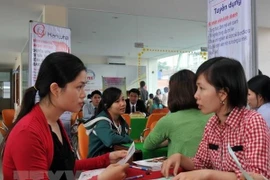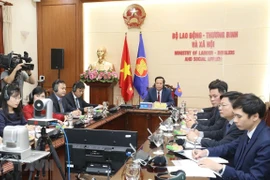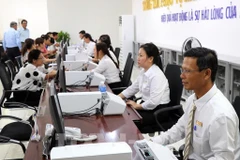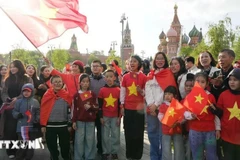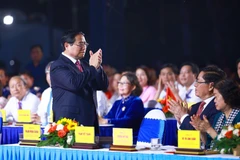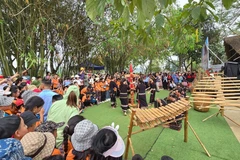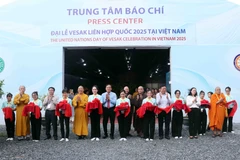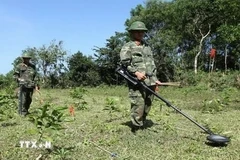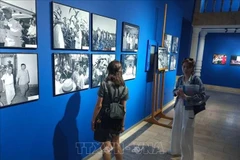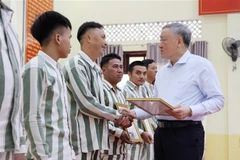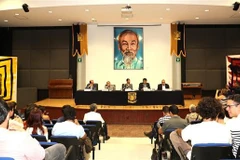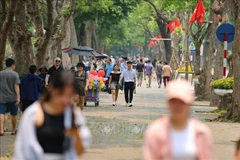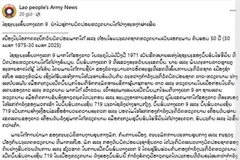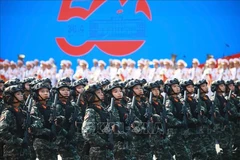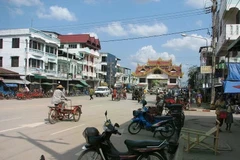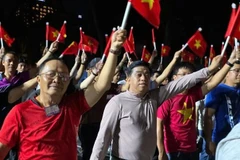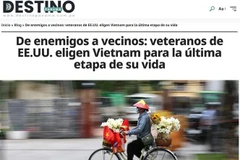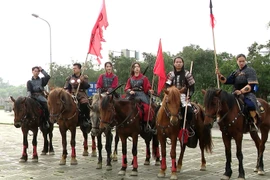 Director of the Department of International Cooperation under the MoLISA Nguyen Manh Cuong speaks at the dialogue (Photo: VNA)
Director of the Department of International Cooperation under the MoLISA Nguyen Manh Cuong speaks at the dialogue (Photo: VNA) Hanoi (VNA) – The 11th ASEAN Regional TripartiteSocial Dialogue Conference was held virtually on December 17 by theMinistry of Labour Invalids and Social Affairs (MoLISA) and the ASEAN Services Employees Trade Union Council (ASETUC).
Speaking at the conference, Director of the Department of InternationalCooperation under the MoLISA Nguyen Manh Cuong said 2020 is a special year withmany changes due to COVID-19, which has affected the lives of millions ofpeople in the world.
The conference is an important opportunity to propose sustainable solutions, collectways to respond to the pandemic of ASEAN’s partners, and share labour-related issues.
According to the International Labour Organization (ILO), an estimated 81 percent of the global workforce is currentlyaffected by total or partial job loss. The crisis "wiped out" 12.1percent of global working hours in the third quarter of 2020 - equivalent to345 million full-time workers, including 185 million from Asia-Pacific.
The health crisis is affecting millions of companies worldwide, especially inthe aviation, tourism, hospitality and retail sectors, Cuong said.
According to him, a joint statement was approvedat the Special Meeting of ASEAN LabourMinisters on Response to the Impact of COVID-19 on Labour and Employment in May this year, which highlights actions tosupport migrant workers who are stranded in each other or in a third country.
Through their meetings, ASEAN member countries has worked together to respondto the effects of the pandemic by taking measures to maintain the health andlivelihood of the people and accelerate the regional economic recovery, Cuongnoted.
Mammal, Secretary General of ASETUC, said that ASEAN countriesare also affected by global economic crisis and humanitarian disaster,which have had serious impacts on public health, socio-economy, employment andlivelihoods of people. That is why ASEAN countries need to discuss howto build a cohesive and proactive ASEAN after the pandemic, he noted.
The dialogue offers a chance to discuss measures towards overcomingchallenges, he stressed.
Also at theconference, Rajendra Kumar Acharya, UNI Asia-Pacific Regional Secretary, saidthat the ASEAN region had an effective way to control the COVID- 19, however,problems still exist. ASEAN's comprehensive recovery framework is critical toenable sharing of related actions and programmes to ASEAN countries.
He saidthe pandemic crisis will have long-term impact on the labour market, jobquality, wages, social security and labour safety. At the same time, moreactions and dialogues are needed to join hands in resolving worker issues inthe pandemic./.
